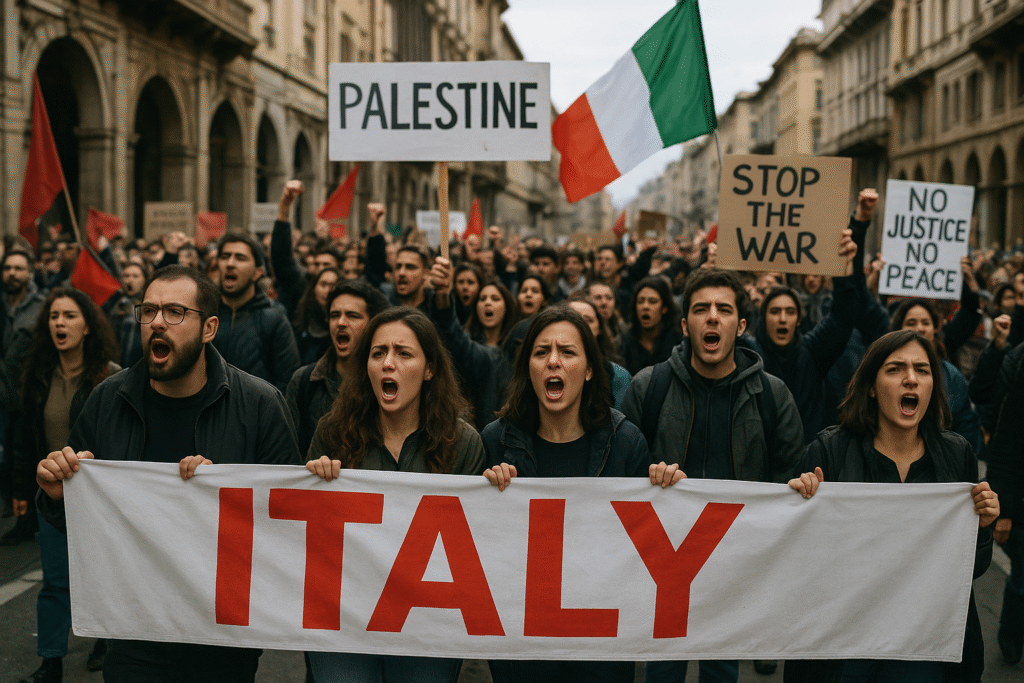
Italy has been rocked by sweeping protests sparked by growing frustration over its government’s stance on the conflict in Gaza. Thousands of workers, students, and unions have mobilised in cities like Rome, Milan, Bologna, and Genoa. The unrest reflects deep divisions over foreign policy and humanitarian concerns.
Unions such as USB, CUB, SGB, and ADL led a 24-hour general strike across more than 75 municipalities. Sectors including transportation, education, and ports were disrupted. The goal: to block arms shipments and demand Italy distance itself from escalating violence abroad.
In major protests, tensions turned violent. In Milan, demonstrators clashed with police at the central train station, hurling objects, breaking windows. Law enforcement responded with tear gas. Similar scenes unfolded in Bologna and other cities where sidewalks, roads, and universities became flashpoints.
While protesters called for solidarity, many voices criticised the government under Prime Minister Giorgia Meloni. Her administration has refrained from recognizing Palestine, cautious in aligning with EU sanctions. Citizens point to a perceived gap between public sentiment and official action.
Looking ahead, the protests may lead to policy changes if pressure continues. Union leaders are calling for greater accountability, transparency in arms trade, and humanitarian diplomacy. Italy’s political future may hinge on reconciling national values with international obligations.
